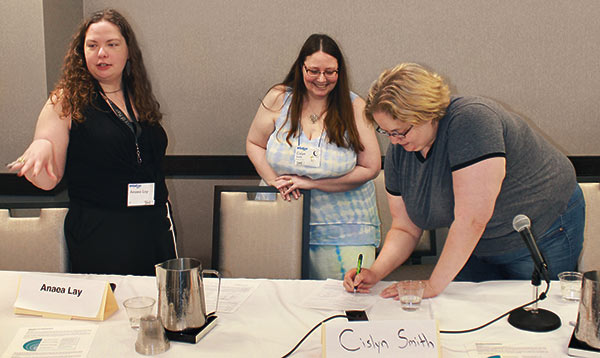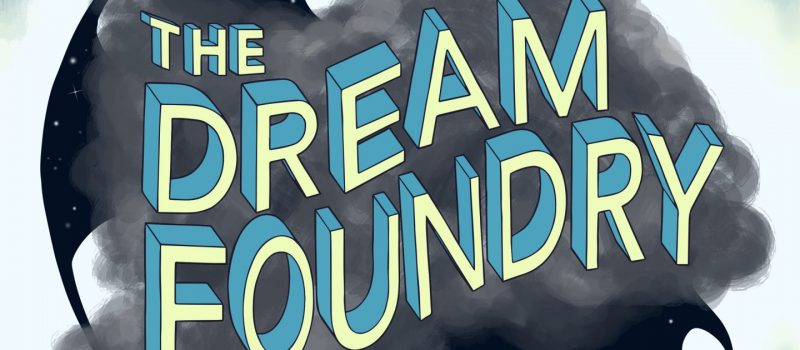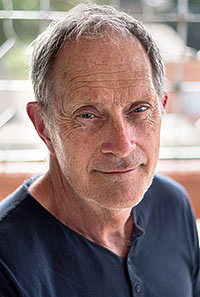Flights of Foundry: From Idea to Convention in Seven Weeks
Flights of Foundry, a completely online speculative media conference, took place May 16-17, 2020. The event was co-founded by Jessica Eanes and Cislyn Smith, and featured 8,300 minutes of programming, which ran non-stop from midnight on Friday to midnight on Sunday. Guests of honor included Suzanne Walker, Wendy Xu, Ken Liu, Liz Gorinsky, Andrea Phillips, Rachel S. Cordasco, Grace P. Fong, and Alex Shvartsman. Not wanting to crowd out or take away from the Kickstarter ecosystem, Dream Foundry decided on a different fundraising strategy. The 27 staff members and volunteers pulled the entire event together in seven weeks for 1,252 registered attendees, all of whom attended for free. Online conventions are moving throughout SF/F at speed, the SFWA Nebula Conference a month later being a more well-known example. Flights of Foundry, however, was a grassroots push to break down barriers and create more opportunities for new creatives across speculative genres and disciplines.
Flights of Foundry was built in three parts on three communications platforms, combining familiar technologies to aid in accessibility. Main programming streamed via GoToWebinar; Zoom channels covered panel discussions, kaffeeklatsches, readings, workshops, and interactive group sessions; and the Discord server provided the social con experience.
With all the different ways to interact via voice, webcam, and text, the online space felt like an on-site convention—with perks. The 24-hour programming created real-time participation across the globe, where you could hang out with writers and illustrators in China, Athens, the US, Singapore, Australia, and other places, without flight, visa, or hotel costs. The format was more conducive on a smaller scale as well, solving the problem of “this is more of a comment”-style questions. Participants were free to chatter in the panel-appropriate Discord chat without disrupting the panelists, while moderators skimmed for questions marked QUESTION: in all caps. Technical difficulties were few and far between, other than a brief GoToWebinar outage on Sunday morning.
In the spirit of access, Flights of Foundry hired Alternative Communication Services (<acscaptions.com>) to provide Closed Captioning on the five panels predicted to be the most popular. ACS provided a parallel feed which attendees could view in a web browser beside the main stream. Each element of their infrastructure is a readily available tool that other events can incorporate.

The parent organization, Dream Foundry, is a registered 501c nonprofit that created this event as an extension of their mission to help new professionals in the speculative genres. Their commitment to underserved new professionals fed into their wide and inclusive remit. Programming reflected this, including visual artists, professionals in audio, game design, and other genres like horror, crime, and nonfiction. From portfolio critique sessions to translation, there was in-depth content for every level. Flights of Foundry was proof of concept that speculative media has lots of overlap, and those who wish to join the industry can benefit from branching out.
The biggest question was how to pay for it. Costs were under $900, minus service fees, covered by the funds reserved for other programs planned this year. The rest was a combination of luck and generous sponsorships, a Discord gift of a permanent server, and volunteer hours.
Sponsorship for streaming proved to be the final piece of the framework, and an indicator of possible future trends. Smith met sponsors while attending a free webinar on how to run online conventions. Jason Blanchard helped sponsor the GoToWebinar streams, Russ Gaskin sponsored the Zoom streams, Flights of Foundry got the tools, and the sponsors got their proof of concept.
The biggest expense the organization paid out of pocket was for Closed Captioning and for the software they used to schedule programming, Sched. “We had money earmarked for purchasing equipment like microphones or webcams for the Guests of Honor, but early tech checks made it clear they didn’t need any equipment purchased for them, so that money went to the Closed Captioning budget,” said Eanes.
Dream Foundry’s initial fundraising goal was $4,000, which is what they’d projected for the Kickstarter they didn’t run. Even with the additional expense involved in staging a convention, there would still be money to fund enhancements to their contest and workshop programming. They approached that mark a week before the convention. That’s when they made the Great Consuite Bet: If Flights of Foundry raised $10k by the end of the convention, Eanes would livestream cooking the whole consuite menu (but not all at once). It seemed possible as a very extreme stretch, but not guaranteed since it required them to more than double the donations they’d received in a week’s time.
They hit it.
Because of its grassroots support focus, Flights of Foundry had to approach the logistics of con-running in a different way. Where the Nebula Awards charged $150 for admission or 4-hours of volunteer time, Flights of Foundry was free with a recommended donation of $30—and not a lot of volunteers. They put most of the convention together with less than 10 people, who covered programming, registration, workshops, social media and outreach, dealer’s room, accessibility, and tech; all coordinated through Discord. The remaining volunteers acted as facilitators during live events.
Dream Foundry offers programming beyond FoF, and their Discord is still active, including an extension of Dream Foundry’s multimedia discussion club. They also have several contests coming up this year, one for beginning writers, and one for beginning artists. There are cash prizes for the top three winners of each, and no rights taken. Given the horror stories many new professionals tell, it’s both welcome and overdue to find an organization like FoF so prepared to engage, learn, and grow. If you’d like to know more, sign up for their mailing list to hear about their summer programming, get details about the contest, and Eanes’ plan for the cooking and distribution of the consuite menu visit the Dream Foundry site.
–Setsu Uzumé
This story and more like it in the July 2020 issue of Locus.
 While you are here, please take a moment to support Locus with a one-time or recurring donation. We rely on reader donations to keep the magazine and site going, and would like to keep the site paywall free, but WE NEED YOUR FINANCIAL SUPPORT to continue quality coverage of the science fiction and fantasy field.
While you are here, please take a moment to support Locus with a one-time or recurring donation. We rely on reader donations to keep the magazine and site going, and would like to keep the site paywall free, but WE NEED YOUR FINANCIAL SUPPORT to continue quality coverage of the science fiction and fantasy field.








